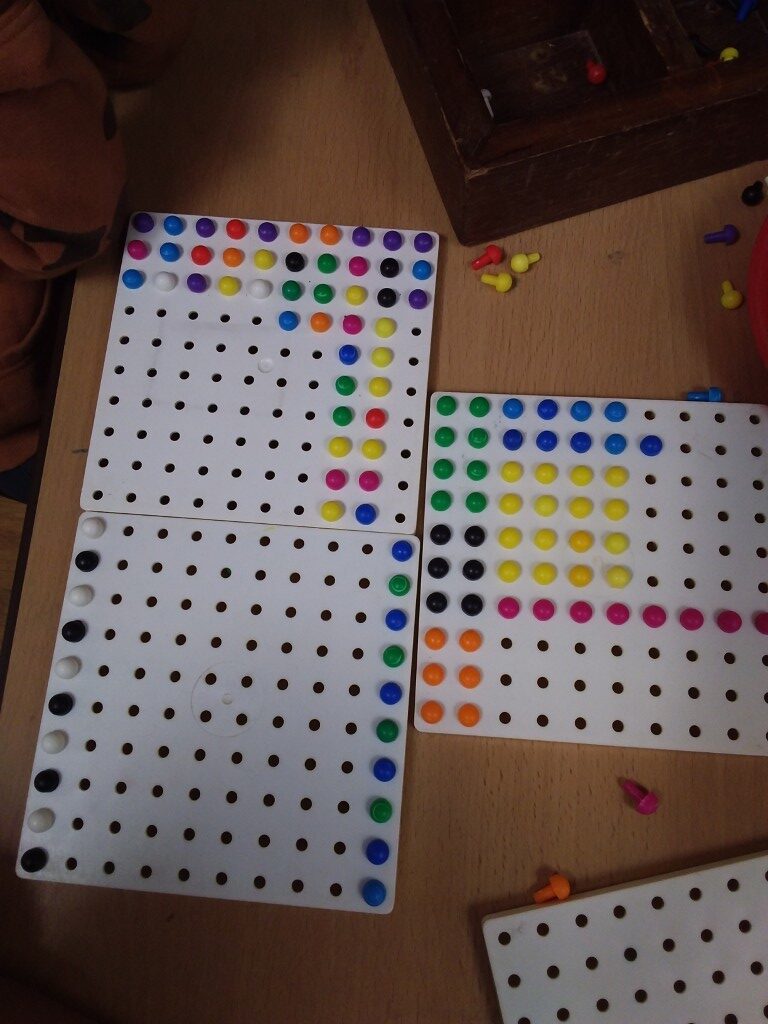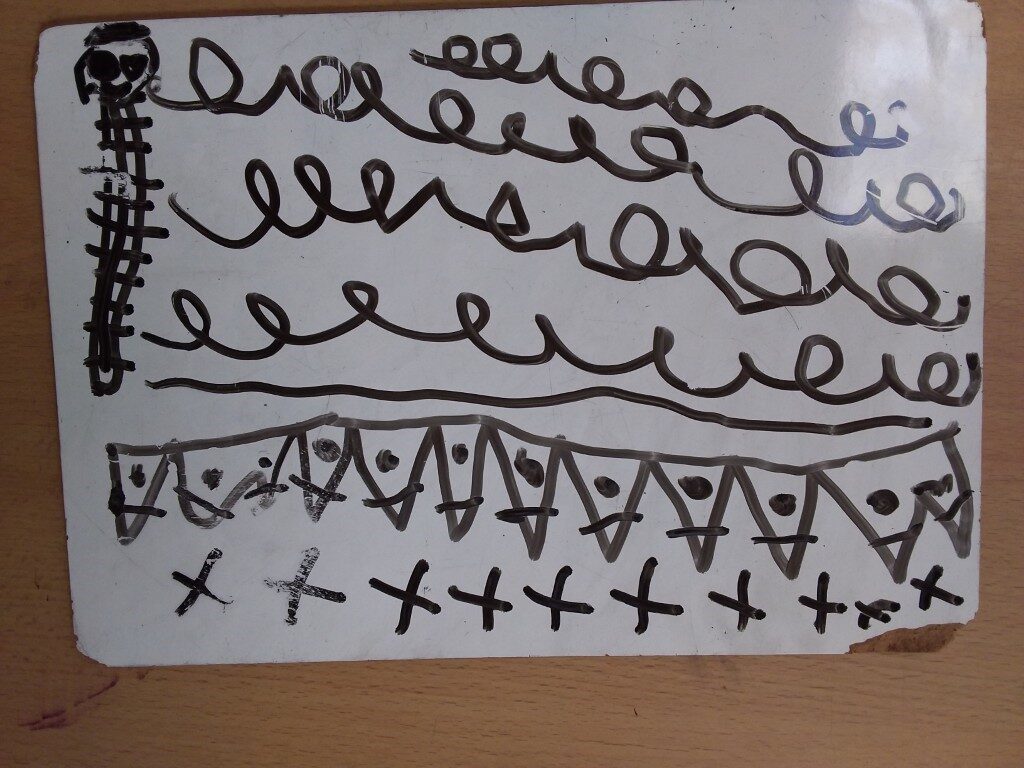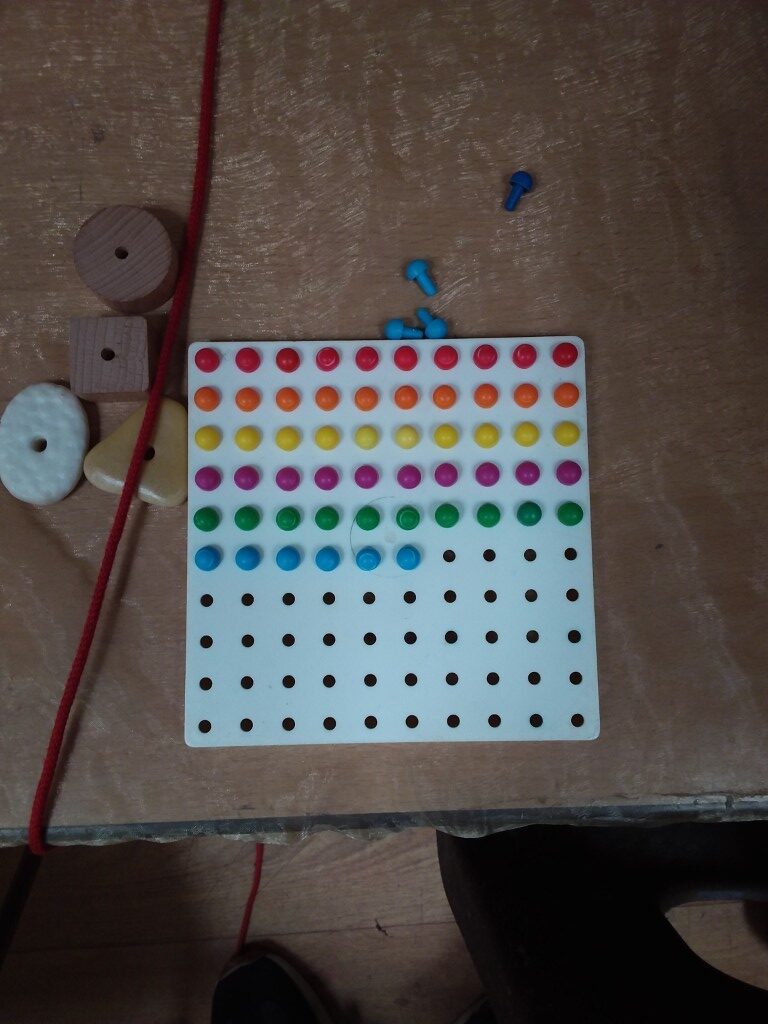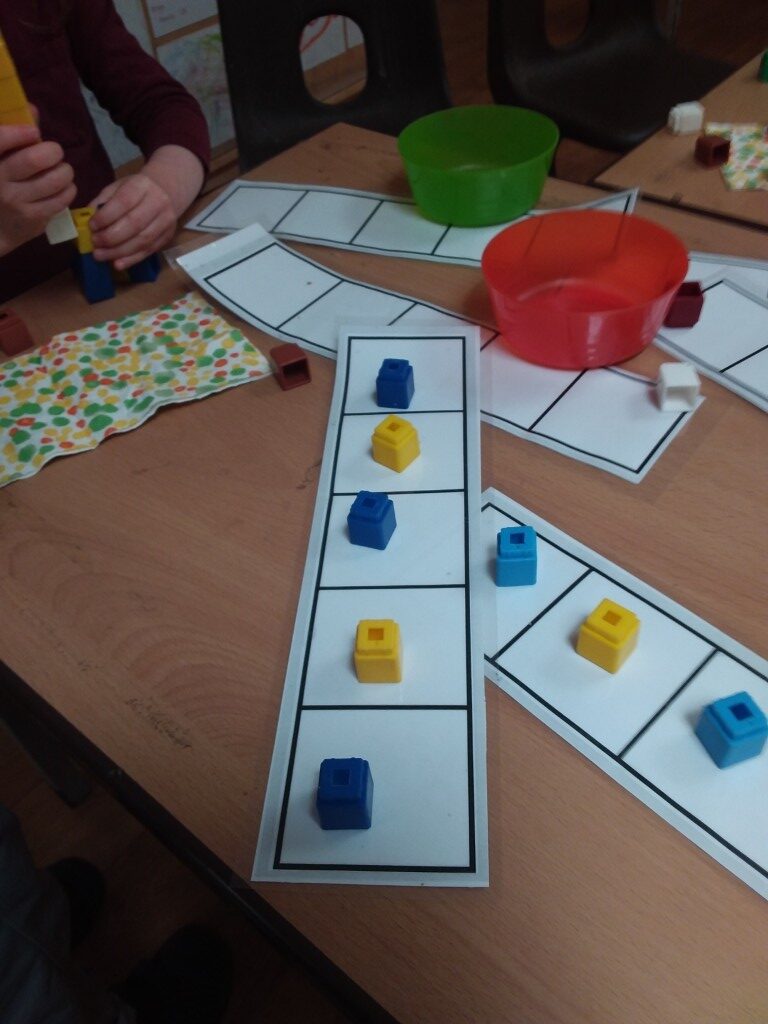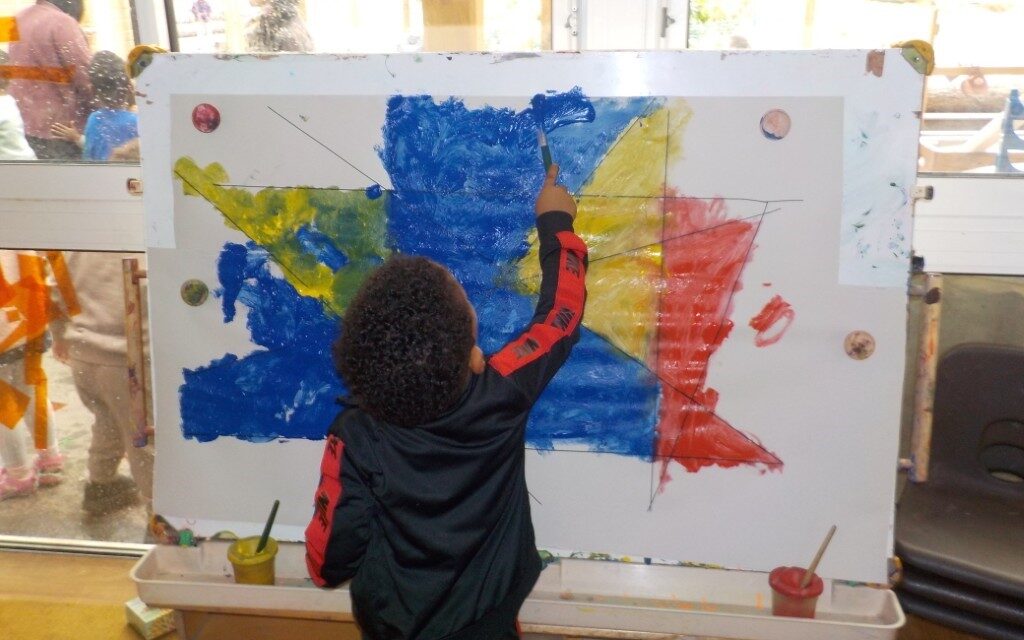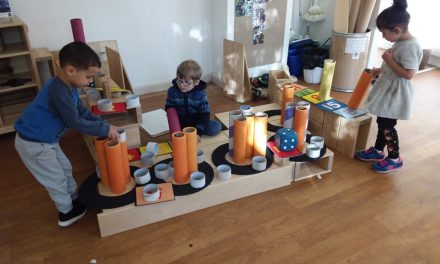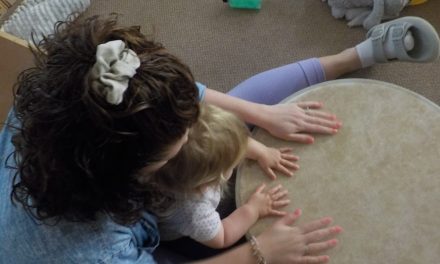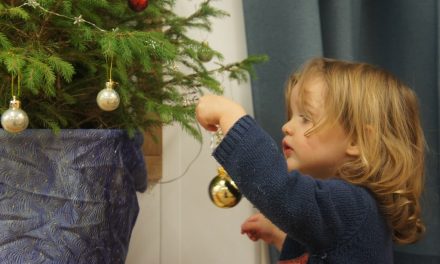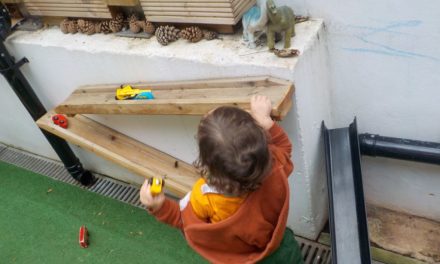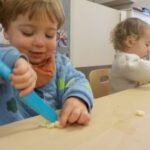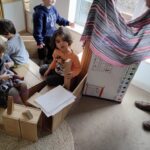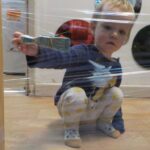We Are Mathematicians!
Maths is everywhere!
Children are natural mathematicians.
They intuitively look for patterns and relationships.
We have been “researching children researching the world”!
Michael from Bristol University has been helping us with Block Play research, helping us to dig deeper into ideas of pattern and symmetry.
We know that the firm foundations of Early Maths is PATTERN PLAY and SPATIAL REASONING.
Later success in counting is reliant upon the visual, verbal and tactile experiences children have now.
That’s why Block Play is so brilliant!
We have a saying “If children’s hands are their best research tool… then what do we put within their reach?”
And Blocks are such a flexible, open-ended, dynamic resource for children.
Our Block Play research has been helping us understand children’s mathematical explorations.
Children have been showing us such powerful mathematical thinking and action!
We have observed children really exploring ideas of SPATIAL REASONING asking themselves in words and actions “does this fit?”.
Children have been developing their early maths concepts through…
Language of position, direction, distance.
Composition and decomposition of shapes, creating and taking apart shapes composed of other shapes.
Fitting blocks together, nesting them in each other, stacking them on top of one another.
Perspective-taking, looking at their constructions from different points of view, taking different positions so that size and distance change.
Scaling by zooming in and out of their models, using small-scale animals, cars, people to represent and imagine the world on a different scale.
Navigation, mapping their models by finding routes and paths through, over, around them using vehicles, people, animals, themselves!
We have observed children’s Early Maths through their play with objects and images…
Identifying 2D and 3D shapes, looking at similarities and differences, playing with how the shapes can be transformed and changed through each other.
Playing with properties of shapes, discovering ideas of angles, lines, corners.
Exploring the structure of shapes and how to creating symmetries and patterns.
Our Mathematical Development Curriculum supports children in
• Seeing patterns and making connections
• Applying understanding of shape, space and measure
• Using mathematical reasoning to solve problems
• Talking mathematically
Our Block Play research is really helping us think deeply about Early Maths and how we best support, ignite and provoke it!
Our Block Play research is “researching children researching the world”!
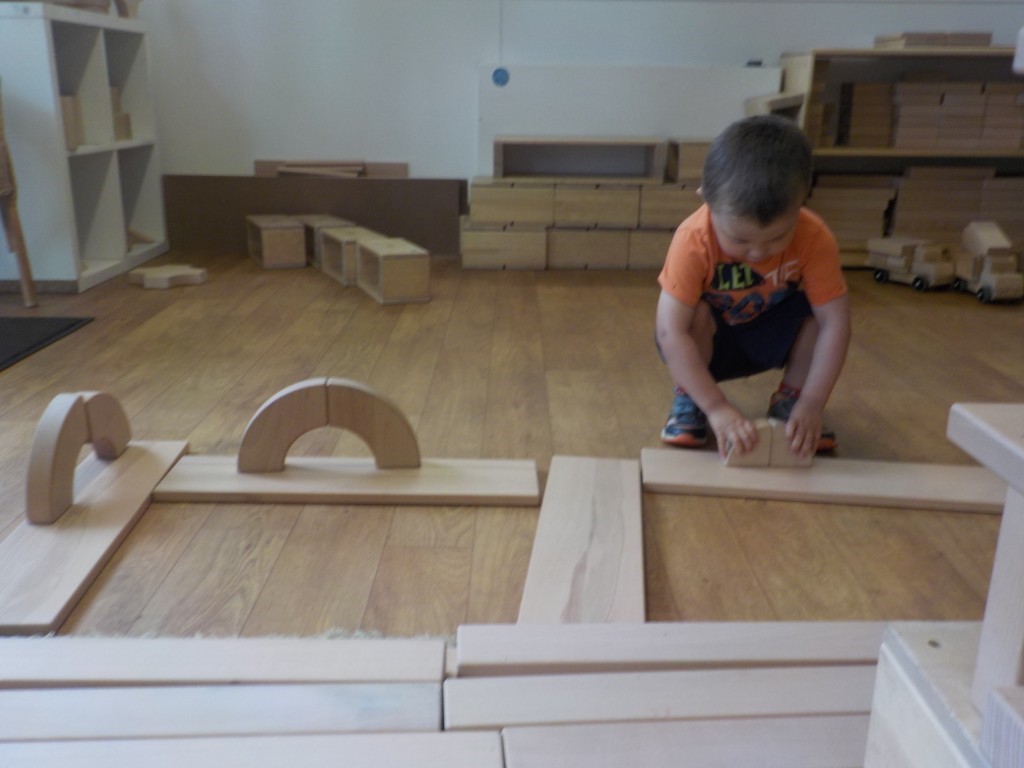
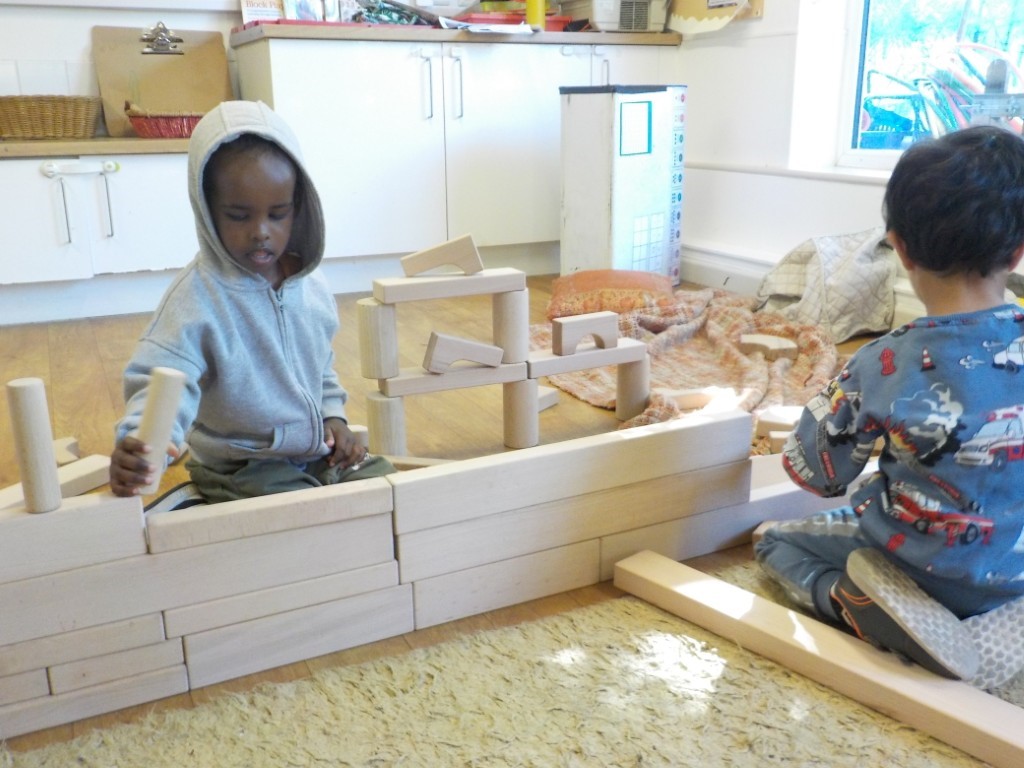
We Are Artists
We have been inviting children to explore line and shape, colour, and pattern.
Have you ever seen the work of Mondrian?
His art was full of simple geometric designs – rectangles, squares filled with bold blocks of colour – red, blue, yellow, black.
Our curriculum supports Expressive Art and Design, supporting children to be creative thinkers, develop skills to explore, design and make and express themselves in their many many different creative ‘languages’.
We invited children to explore the ideas of Mondrian and make links in their learning – from Pattern Play to Block Play.
Would you like to design and make pictures full of line and shape, colour and pattern?
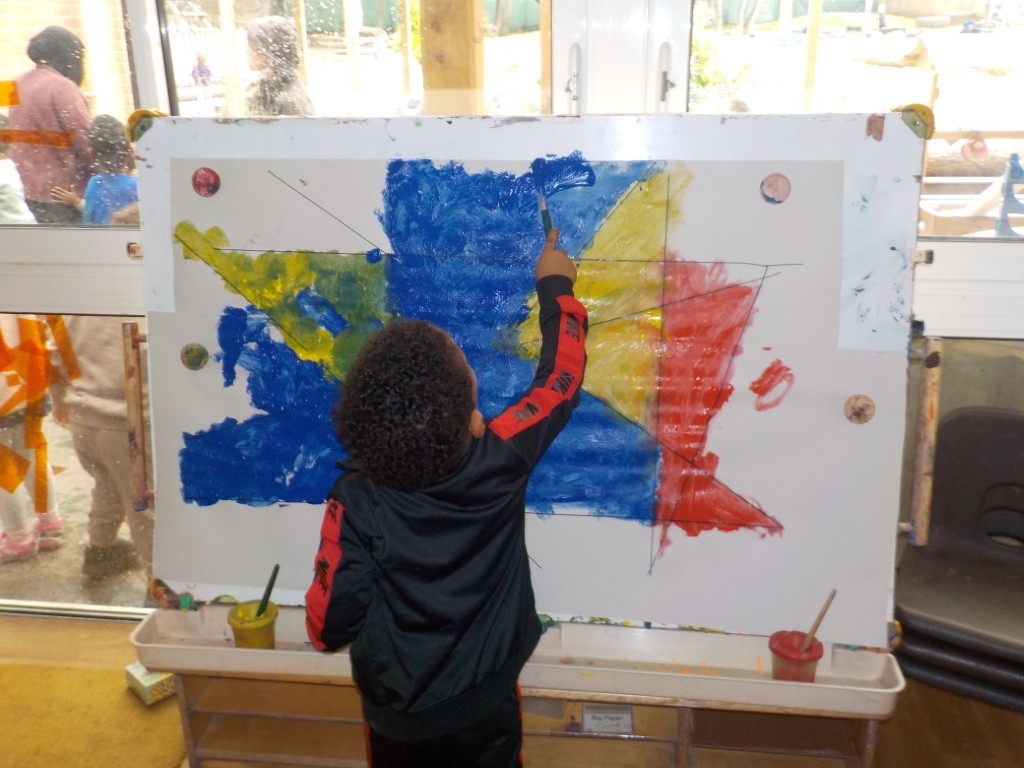
We Are Scientists
We are curious!
We have been noticing all sorts of insects in our garden and wondering about their habitats.
We have observed
snails
ladybirds
beetles
ants
worms
woodlice
spiders
caterpillars
Our St. Paul’s Promise “I use all my senses to engage in scientific enquiry” helps us plan and support children’s curiosity as they explore, examine and wonder about their many worlds.
We have been observing them closely, using magnifiers to explore and examine, to wonder and question, to question and reflect.
We have also been drawing insects and learning with Chloe about the life cycle of butterflies.
Our Caterpillars are now Chrysalises preparing to transform into butterflies.
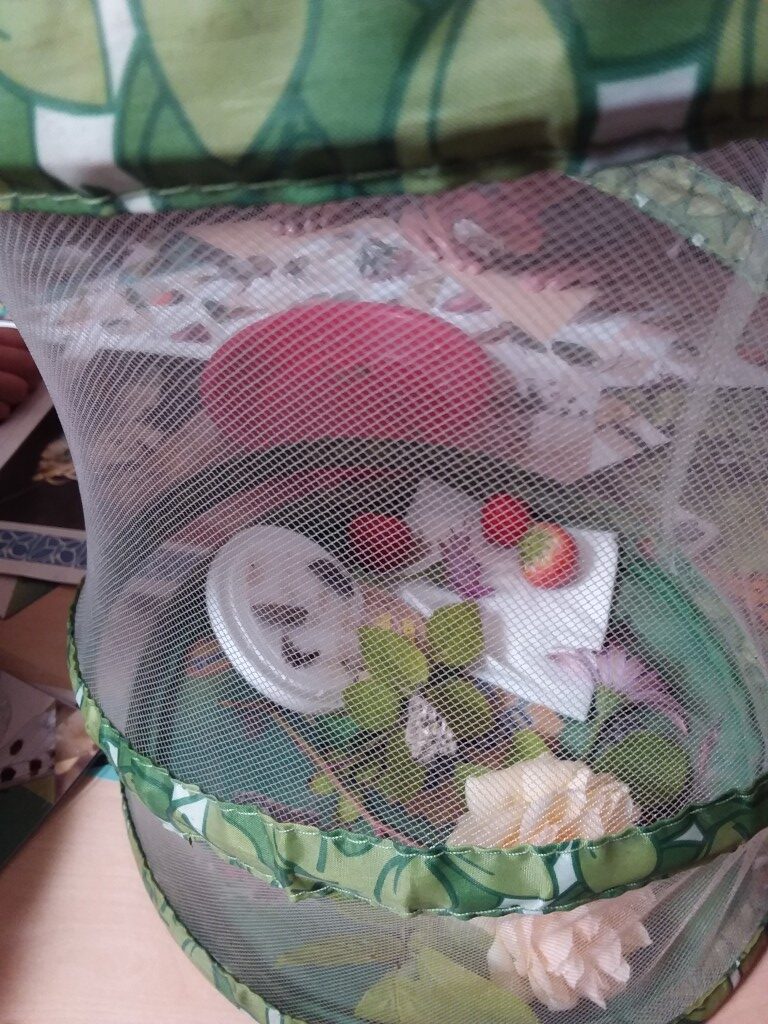
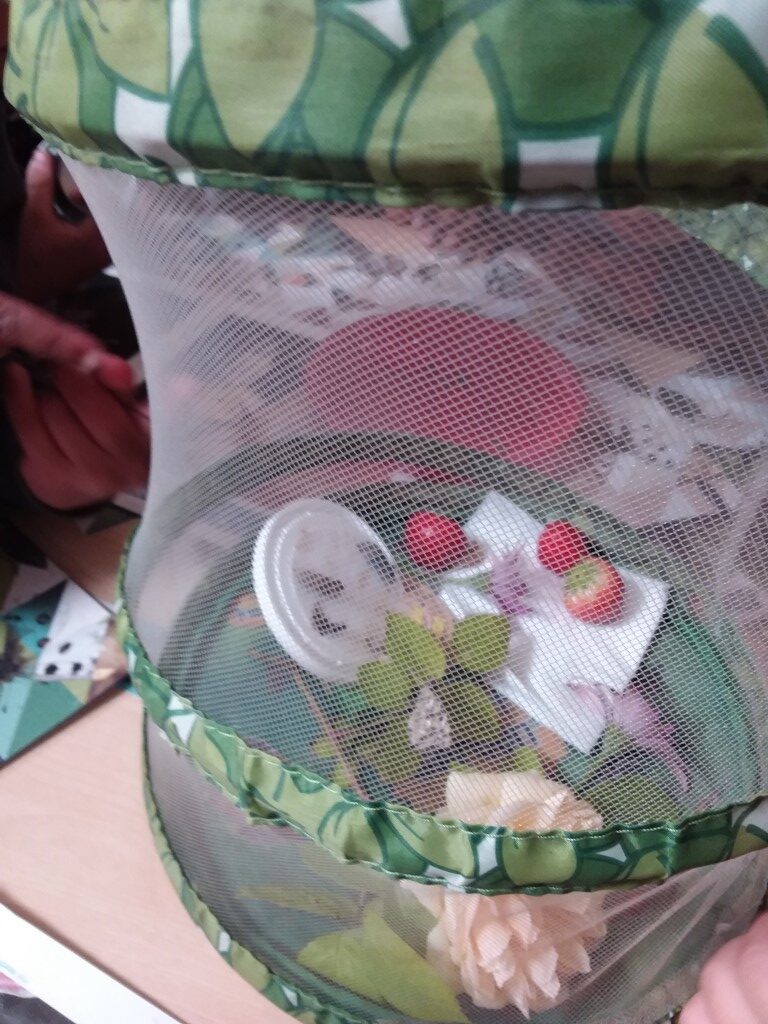
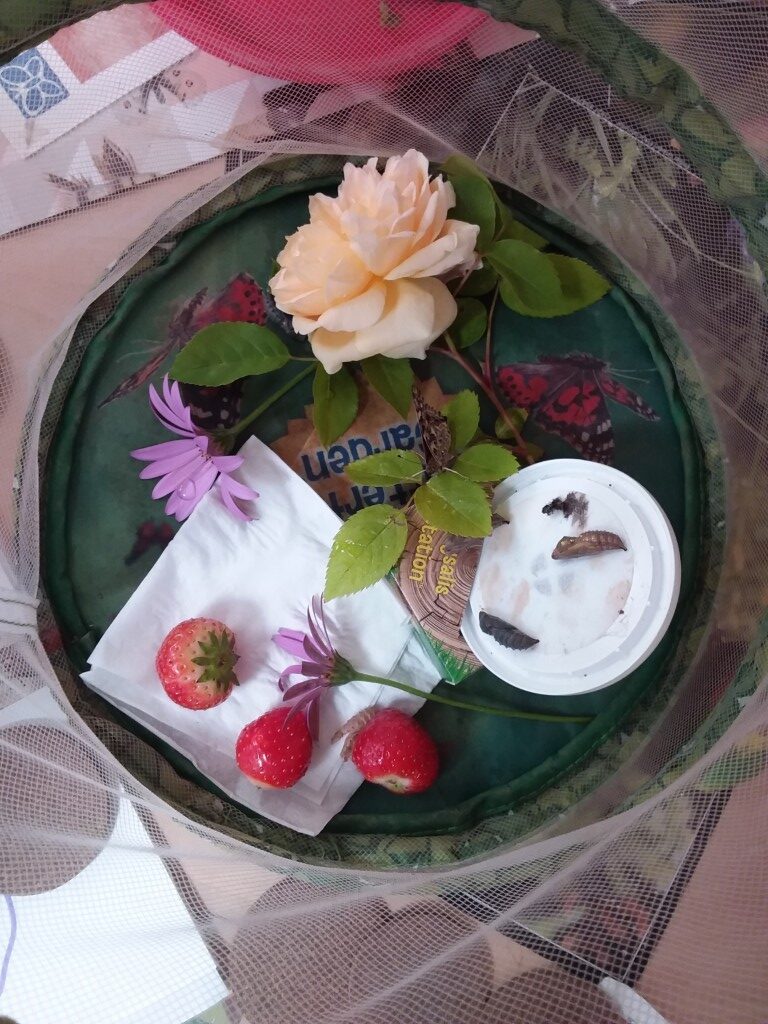
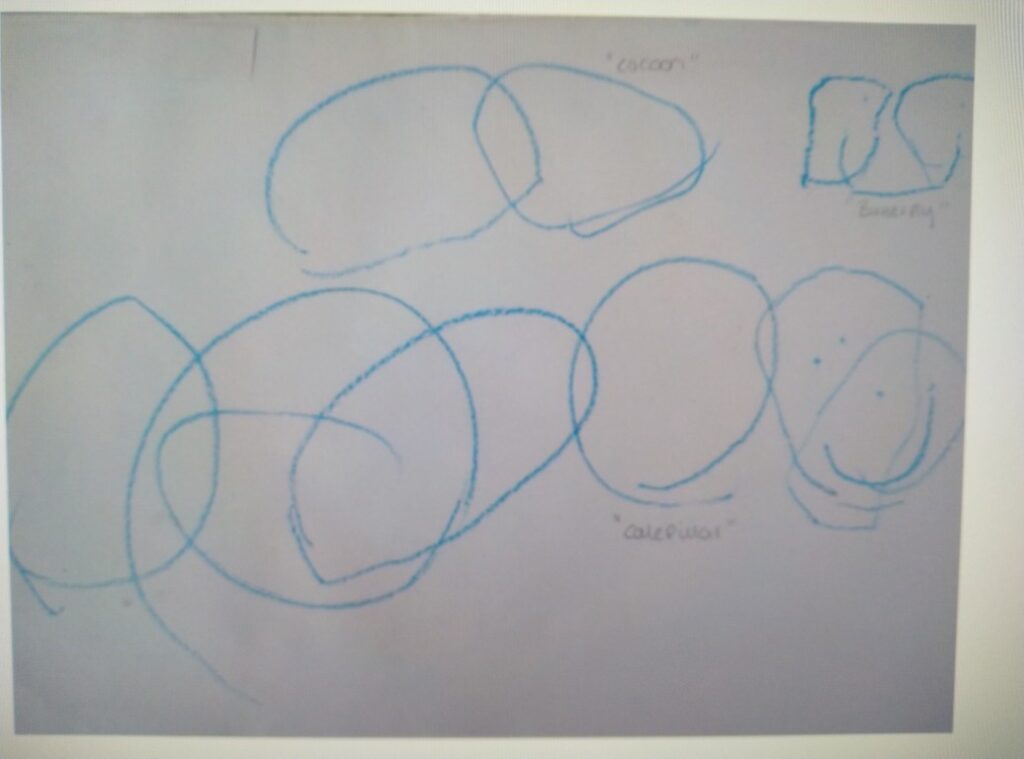
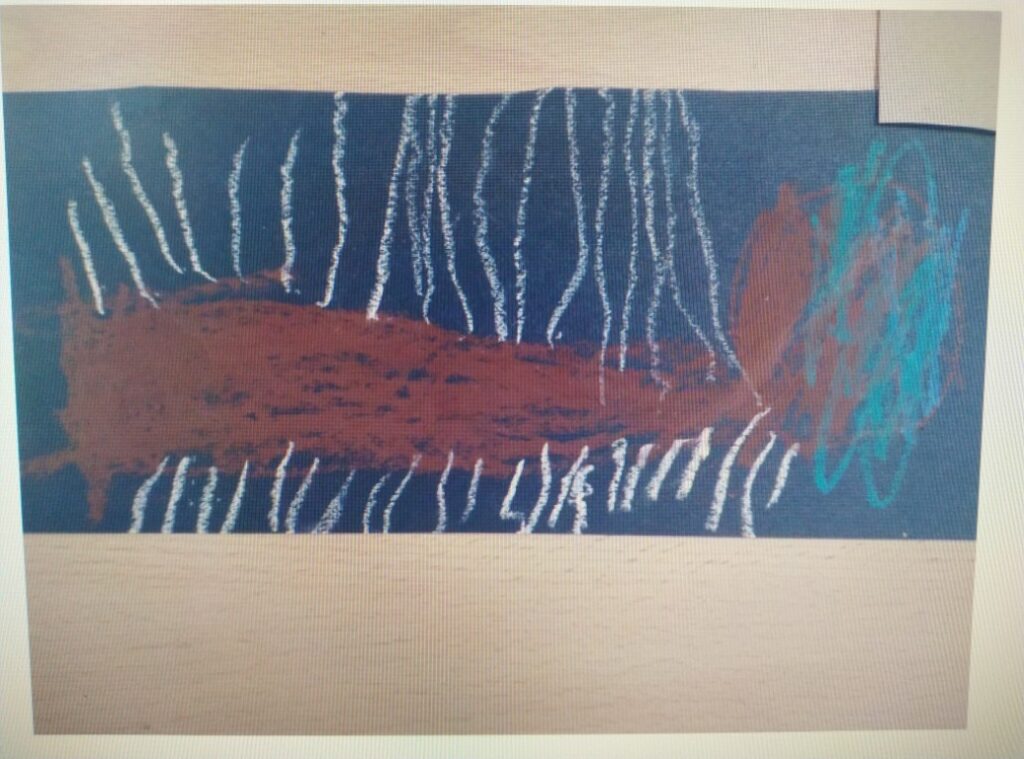
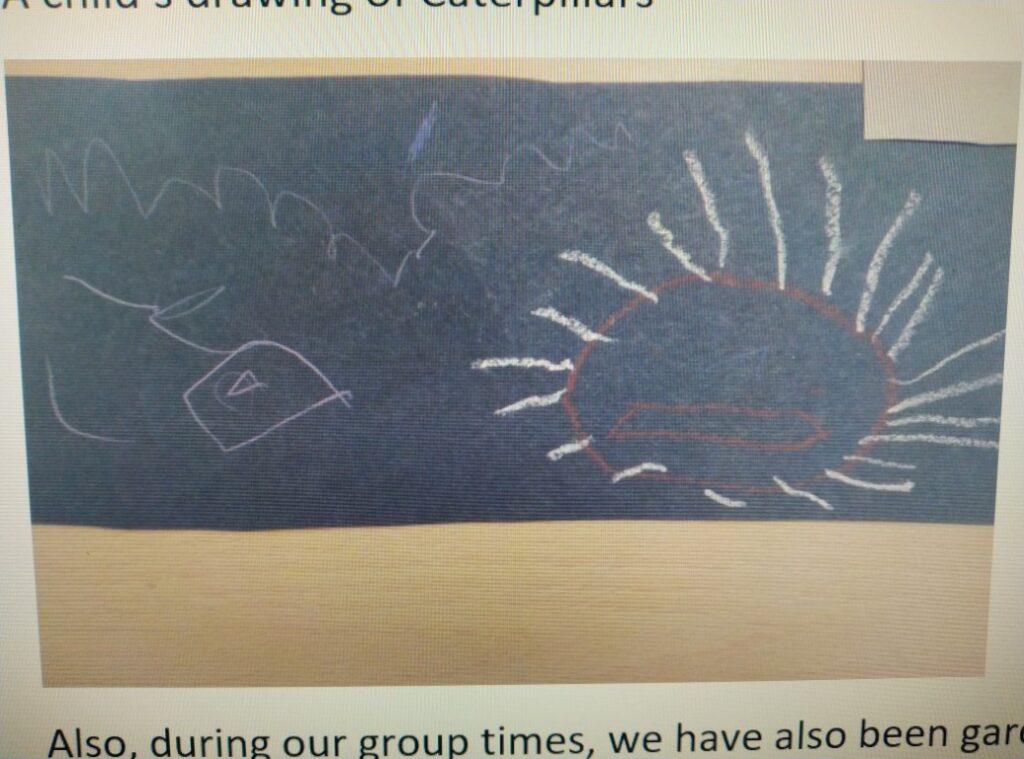
We Love Grouptimes
Grouptimes are a great time to collaborate and learn together.
Our St. Paul’s Promise “I can belong and contribute to a group” supports children to share ideas, expertise and positive attitudes to learning.
We have been Big Bold Movers at Grouptime!
Our St. Paul’s Promise “I am a Big Bold Mover” helps children to explore, experiment and enjoy the movement of their bodies.
We have been using our core strength to climb and balance, lift and carry, push and pull.
We have been using tyres, wheels, bikes and cylinders to push, pull, pedal and balance.
We have been building dens.
We have been digging holes.
We have been creating obstacle courses.
We have been carrying buckets full of water.
We have been collaborating and problem-solving.
We have been using our bodies to
Turn
Spin
Roll
Swing
Jump
Bounce
Slide
Climb
Stretch
Run!
We been gardening in our Grouptimes!
We have been planting a range of different seeds in the allotment and learning how we take care of our seeds, making sure they have enough water and sunlight.
We have been planting a range of seeds
Onions
Carrots
Courgettes
Beetroot
How will they grow?
Watch this space!
We have been telling stories in Grouptimes.
We have Storytime every day.
During story times we have been using a range of different props and story maps to tell our stories and then we have been innovating the story.
Helping the children to become storytellers.
Our St. Paul’s Promise “I am an inspired and inspiring storyteller” helps support children experience the intimacy of sharing stories, confidently retell stories, use storybook language and ignite their creativity and imaginations.
The Power of Pattern
Children who expect mathematics to ‘make sense’ look for patterns.
We have been supporting children to recognize the repetition and regularity of patterns.
We have been exploring all sorts of patterns…
Visual patterns
Sound patterns
Movement patterns
Number patterns
We have been exploring patterns that are
Repeating
Growing
Concentric
Symmetrical
We have been using all sorts of materials to help us understand the Power of Patterns.
